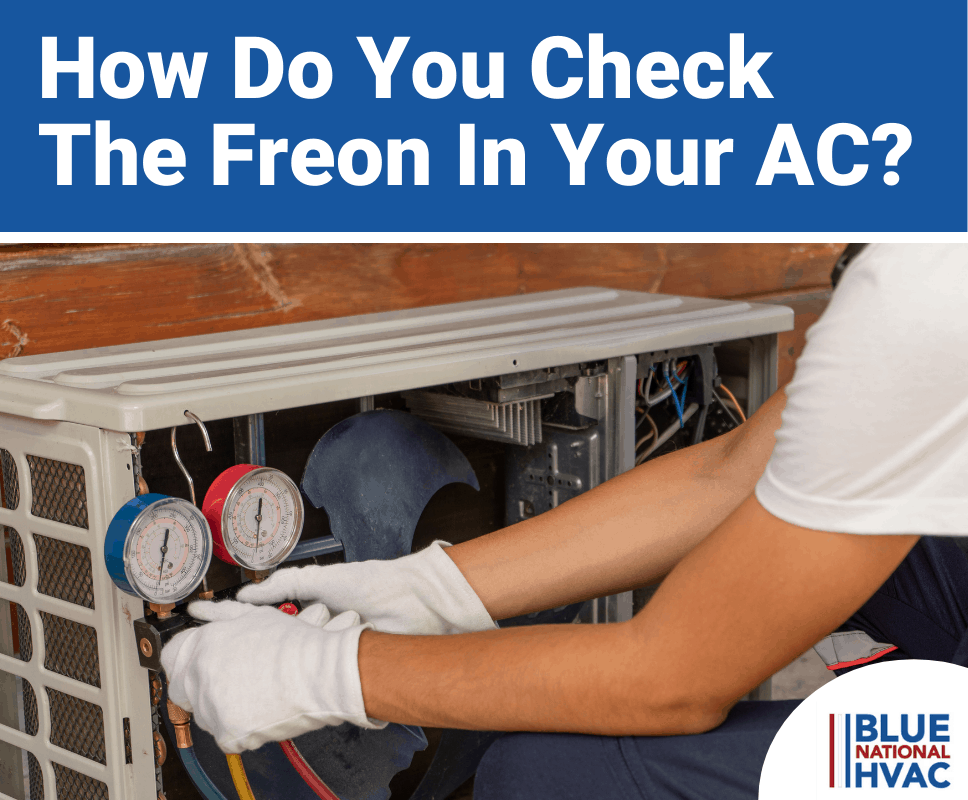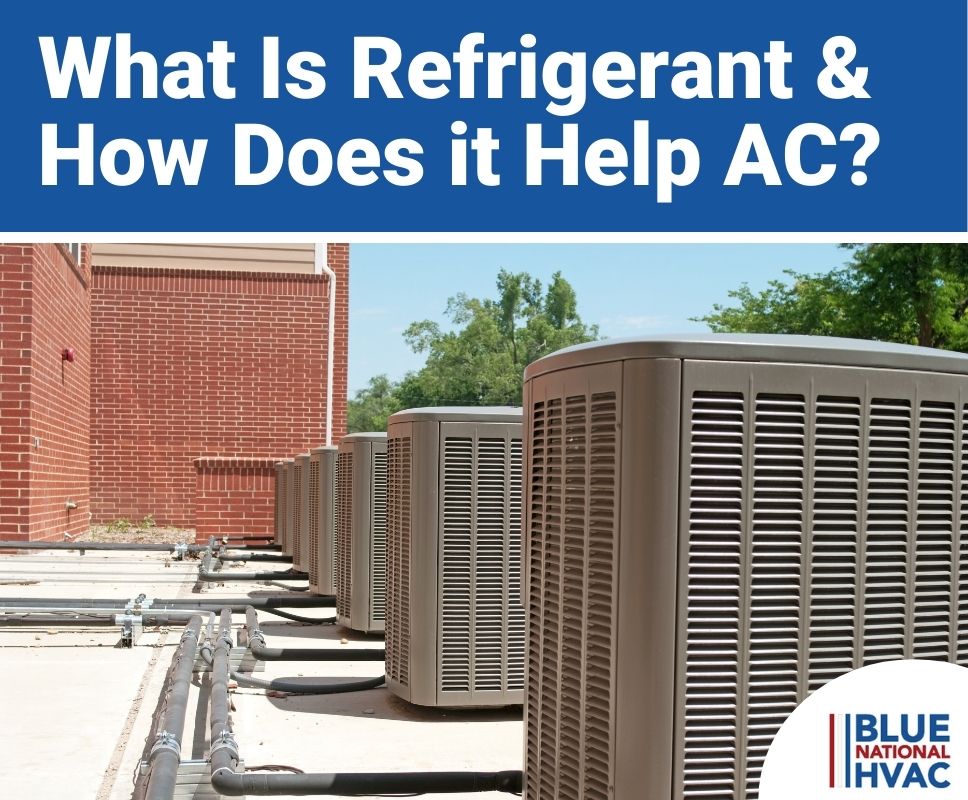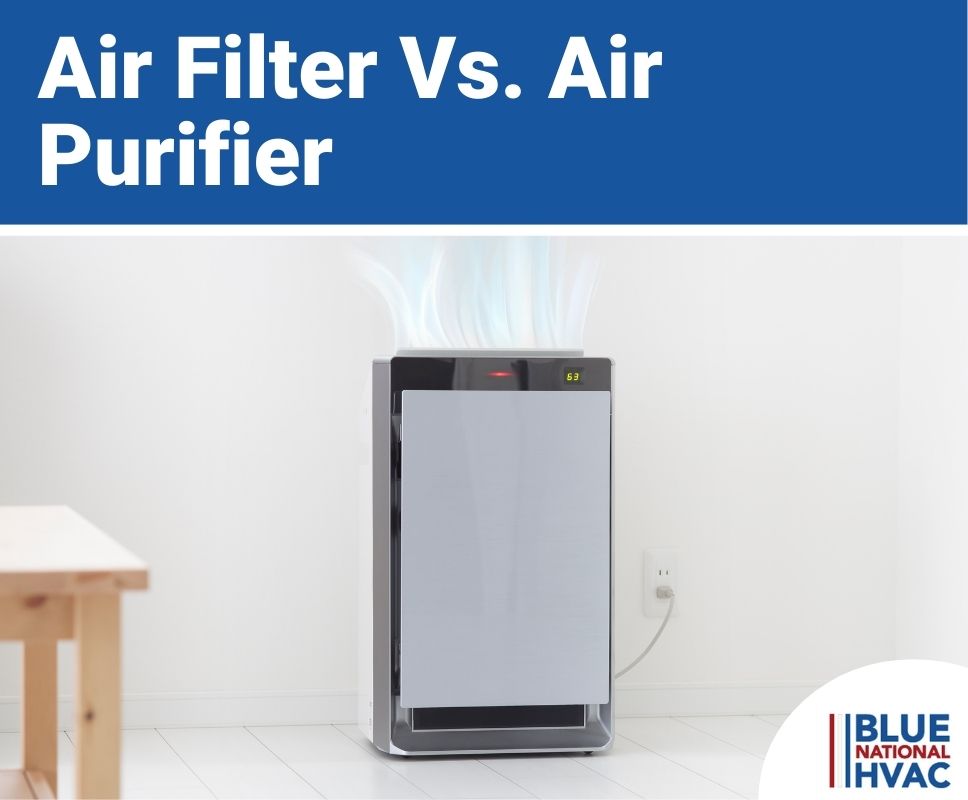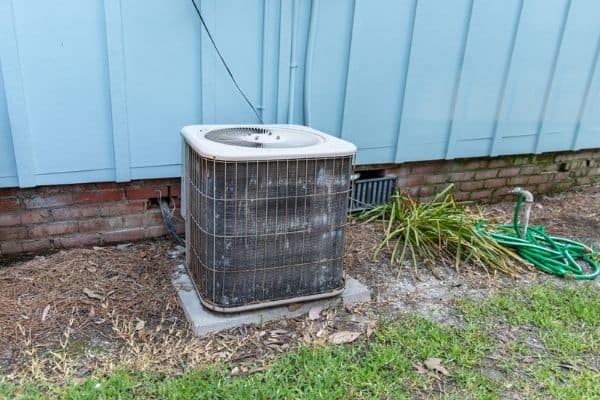So, if you’re looking for tips on how to check the freon in a home air conditioner, keep reading our detailed guide below to get answers to all of your questions!
Contents (Click To Jump)
How Do You Check The Freon In A Home Air Conditioning Unit?
As the outside temperature rises in the warm summer months, your air conditioner has to work harder to cool your home. When the AC unit won’t cool their homes to the proper level, some homeowners might start to worry about the performance of their air conditioning system.
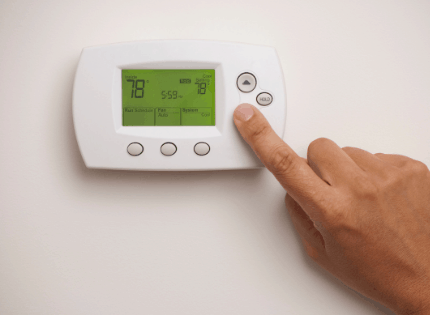
If your home is not cool enough in the dead of summer, you may rightfully suspect your system has low freon levels.
Freon, also known as R-22, is a type of refrigerant that is contained within the closed-looped system of your AC unit that includes your condenser coils, refrigerant lines, compressor, and evaporator coils, among other components.
If you think your “freon” might be low, chances are that your central air conditioner doesn’t even have freon, but another refrigerant entirely.
There are actually multiple types of refrigerants or coolants that can be used in your AC system:
R-12: a chlorofluorocarbon which was stopped being used in AC units in 1994 due to its harmful greenhouse gas effect on the ozone layer
R-22 (freon): similar to R-12, freon is harmful to the ozone layer and was phased out of use entirely in 2020 as a result of the Clean Air Act of 2010
R410A (Puron): the most common type of refrigerant used in residential air conditioners today
With that being said, it is never recommended for homeowners to check the freon or refrigerant levels in their air conditioner. Checking and recharging refrigerant can only be completed by trained professionals with EPA Section 608 certification. This is because freon is a toxic substance and if there is a leak or a problem that occurs, you could be putting your health or the health of your family in jeopardy.
How HVAC Pros Use Refrigerant Manifold Gauge to Check Refrigerant
If you need the refrigerant levels of your air conditioner checked, give our team of HVAC technicians a call. They are all trained, and EPA certified to repair leaks, check levels, and recharge the refrigerant.
They also have the proper tool to check your AC unit’s refrigerant levels. Specifically, they will use an instrument called a refrigerant manifold or refrigerant gauge set to check for low pressure.
Our HVAC will use the refrigerant levels on the inlet and the outlet of your AC system to make sure they have the proper pressures. If your air conditioner does not have adequate refrigerant pressure, that means there is not enough of it in the AC unit.
If that is the case, the HVAC technician will use various tests (which we cover later) to determine if your AC unit has a refrigerant leak. If it does have a leak, they will do a quick AC repair before using the refrigerant manifold to recharge your air conditioner with more refrigerant.
What Are The Signs Your Air Conditioner Is Low On Refrigerant?
Homeowners that aren’t EPA certified to check refrigerant levels of their air conditioners can do several checks to determine if their AC unit has low refrigerant levels.
An air conditioner without enough refrigerant has some tell-tale systems that you can find yourself if you know where to look (and listen).
Warm Air Is Blowing
If it’s the dead of summer, your thermostat is set to a cool 72°F, and your vents are pumping out warm air, there’s obviously an issue somewhere with your air conditioner. While low refrigerant isn’t the only culprit that can cause the lack of cold air, it is always a symptom of low refrigerant levels.
Frozen Coils or Refrigerant Lines
When refrigerant is stored within your air conditioner’s refrigerant lines and coils, it is under a lot of pressure. Suppose you have a leak in the lines or the coils, the refrigerant escapes and quickly drops in pressure. This sudden pressure drop rapidly cools the refrigerant, which can lead to ice formation.
If you see ice on your evaporator coils on your indoor air handling unit, anywhere along your refrigerant lines, or on your outside unit, you likely have a leak near the ice formation.
Hissing Noise
If you have a pinhole leak on your air conditioner’s refrigerant lines or the coils, it can make a high-pitched hissing sound while it is leaking out. The hissing is easier to listen for if your air conditioner isn’t running and is usually a sign of a refrigerant leak.
Higher Energy Bills
When an air conditioner has a slow leak, it will be hard to notice the incremental change. When your air conditioner has less refrigerant, it works less efficiently. Over time, a slow leak will cause your air conditioner to run for more extended periods of time to pump cool air into your home.
If you notice an upward trend in your energy bills, despite the outdoor temperature remaining relatively the same, you may have an issue with a slow refrigerant leak.
AC Unit Trips The Breaker
When refrigerant levels get very low, your air conditioner will be working overtime trying (and failing) to cool your home. It will constantly be running with too little refrigerant and will eventually overheat and trip your circuit breaker.
Tripping the breaker can be caused by other issues with your AC system. However, if the tripping breaker is combined with hot air coming out of your air vents, it is most likely due to not having enough refrigerant.
How Often Should Freon Levels Be Checked?
The refrigerant level in your air conditioning system should be checked at least once per year, preferably before the summer months.
Since only EPA-certified technicians should be checking refrigerant levels, a routine preventative maintenance plan is the best way to ensure your levels are maintained. Call our team of HVAC experts today to learn more about our maintenance plans!
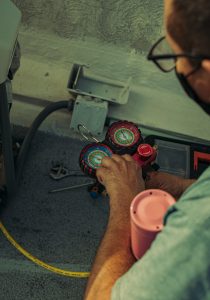
Can You Add Freon Yourself?
Unless you are EPA Section 608 certified and properly trained, you cannot add freon or any other type of refrigerant into your air conditioner unit. Don’t worry though – we can help! All of our HVAC technicians are EPA-certified and are awaiting your call today.
Does Your AC Unit Have A Freon Leak?
Your air conditioner is reliant on the proper levels of refrigerant to cool your home. Think of the refrigerant as the “blood” of your air conditioning system. If it loses too much through a leak, it will die or fail.
In a perfect world (with no leaks), your AC unit should never lose refrigerant. However, the world is not perfect, and leaks can develop. Sometimes the leaks are small and might take months (or even years) to have noticeable effects on the AC unit’s performance. However, when the leak is large and your air conditioner leaks most of its refrigerant in a few hours, it can be noticeable almost immediately.
How To Identify Refrigerant Leaks
Identifying if your air conditioner has a refrigerant coolant leak is essential in diagnosing why your air conditioner has low refrigerant levels. If there is a leak, recharging the home AC unit with new refrigerant will be pointless since it will just leak out again unless the leak is found and repaired.
- Listen to Your Air Conditioner – a hissing sound, bubbling noise, and other sounds that your air conditioner is struggling to function are signs of a leak
- Use the Soap Test- the soap test involves wiping soapy water on the refrigerant lines and coils; when a leak is present, bubbles will form
- Use Handheld Refrigerant Leak Detector– A handheld refrigerant leak detector can electronically detect refrigerant leaks and the presence of nitrogen
- Die Detection Test- A simple test involves the HVAC technician injecting a UV die into the refrigerant lines, where it leaks out will then be easily found with a UV lamp
- Look for Oil Leakage- When refrigerant leaks, oil often leaks from the system too, it is thick and dark and can be identified with a white cloth or paper towel
These are all examples of tests that a certified HVAC technician may perform on your air conditioner when looking for reasons why the refrigerant levels are low.
When Should You Call An AC Specialist
If you’re confident your AC system has low refrigerant levels and that you have a leak, you need to give our HVAC experts a call right away. Only EPA-certified technicians can fix leaks and recharge the refrigerant of your air conditioner.
Our HVAC technicians are trained and qualified in providing the best AC services to get your leaks repaired, the refrigerant levels recharged, and will get your AC system cooling your home like it’s brand new!

